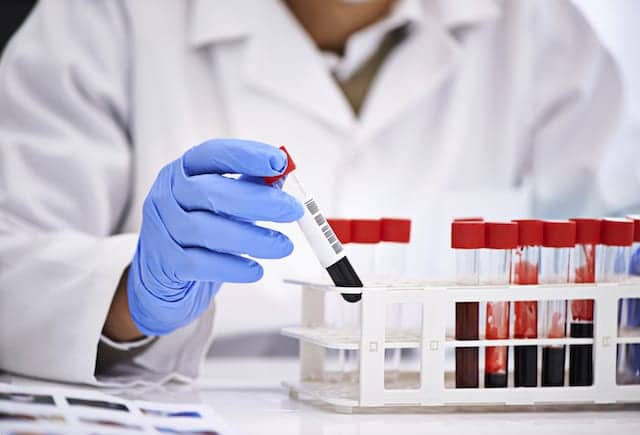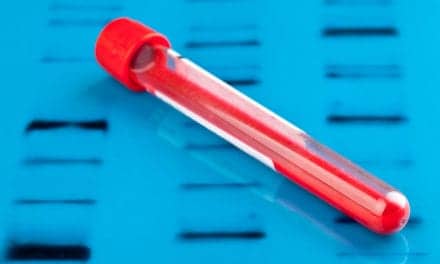FDA has granted premarket notification (510(k)) clearance for marketing of the first blood test to evaluate mild traumatic brain injury (mTBI), commonly referred to as concussion, in adults. As part of its breakthrough devices program, FDA reviewed and authorized for marketing the Banyan Brain Trauma Indicator from Banyan Biomarkers Inc, San Diego, in less than 6 months.
Most patients with a suspected head injury are examined using a neurological scale, called the 15-point Glasgow coma scale, followed by a computed tomography (CT) scan of the head to detect brain tissue damage, or intracranial lesions, that may require treatment. After receiving a CT scan, however, a majority of patients evaluated for mTBI are not found to have detectable intracranial lesions. Availability of a blood test for concussion will help healthcare professionals determine the need for a CT scan for patients suspected of having mTBI, and help prevent unnecessary neuroimaging and associated radiation exposure.
“Helping to deliver innovative testing technologies that minimize health impacts to patients while still providing accurate and reliable results to inform appropriate evaluation and treatment is an FDA priority,” says Scott Gottlieb, MD, FDA commissioner. “Today’s action supports FDA’s initiative to reduce unnecessary radiation exposure from medical imaging—an effort to ensure that each patient is getting the right imaging exam, at the right time, with the right radiation dose.
“A blood-testing option for the evaluation of mTBI/concussion not only provides healthcare professionals with a new tool, but also sets the stage for a more modernized standard of care for testing of suspected cases,” adds Gottlieb. “In addition, availability of a blood test for mTBI/concussion will likely reduce the CT scans performed on patients with concussion each year, potentially saving our healthcare system the cost of often unnecessary neuroimaging tests.”
According to the US Centers for Disease Control and Prevention, in 2013 there were approximately 2.8 million TBI-related emergency department visits, hospitalizations, and deaths in the United States. Of these cases, TBI contributed to the deaths of nearly 50,000 people. TBI is caused by a bump, blow, or jolt to the head, or a penetrating head injury that disrupts the brain’s normal functioning. Its severity may range from mild to severe, with 75% of TBIs that occur each year being assessed as mTBIs or concussions. A majority of patients with concussion symptoms have a negative CT scan. Potential effects of TBI can include impaired thinking or memory, movement, sensation, or emotional functioning.
“A blood test to aid in concussion evaluation is an important tool for the American public and for our service members abroad who need access to quick and accurate tests,” says Jeffrey Shuren, MD, JD, director of FDA’s Center for Devices and Radiological Health. “FDA’s review team worked closely with the test developer and the US Department of Defense to expedite a blood test for the evaluation of mTBI that can be used both in the continental US as well as foreign US laboratories that service the American military.”
The brain trauma indicator works by measuring the level of proteins known as ubiquitin carboxy-terminal hydrolase L1 and glial fibrillary acidic protein, which are released from the brain into blood and can be measured within 12 hours of head injury. Levels of these blood proteins after mTBI can help predict which patients may have intracranial lesions visible by CT scan, and which won’t. Being able to predict whether patients have a low probability of intracranial lesions can help healthcare professionals in their management of patients and the decision to perform a CT scan. Test results can be available within 3 to 4 hours.
FDA evaluated data from a multicenter, prospective clinical study of 1,947 individual blood samples from adults with suspected mTBI and reviewed the product’s performance by comparing mTBI blood test results with CT scan results. The brain trauma indicator was able to predict the presence of intracranial lesions on a CT scan 97.5% of the time, and those who did not have intracranial lesions on a CT scan 99.6% of the time. These findings indicate that the test can reliably predict the absence of intracranial lesions, and that healthcare professionals can incorporate this tool into the standard of care for patients to rule out the need for a CT scan in at least one-third of patients who are suspected of having mTBI.
“With extensive clinical research and scientific validation, Banyan BTI has shown that these two specific protein biomarkers, which are released from the brain and circulate in the blood after a brain injury, can provide objective data to healthcare providers when evaluating patients with a traumatic brain injury,” says Henry L. Nordhoff, chairman and CEO of Banyan Biomarkers. “Receiving marketing authorization from the FDA for the first blood test for TBI is a significant milestone that will transform how brain injury is managed. We are honored to have as our partner, the U.S. Department of Defense and the U.S. Army Medical Research and Materiel Command, for supporting the research and development of a diagnostic test that now provides objective quantifiable information to physicians, to eliminate unnecessary CT scans, and guide patient care.”
The brain trauma indicator was reviewed under FDA’s de novo premarket review pathway, a regulatory pathway for some low- to moderate-risk devices that are novel and for which there is no prior legally marketed device.








Are these protein markers permanently present in the blood stream of a personal who suffers a concussion versus only in those first few hours as noted as earliest detection?